The Spinone . . .
A Unique Breed of Dog
Designer Dogs – Don’t be fooled by a fancy name and high price tag
The ISCGB neither supports nor recognises the crossing of a Spinone with any other breed.
There has been a great deal of publicity in the media about “Designer Dogs” where 2 dogs of different breeds are crossed and produce puppies. These puppies are often given catchy names (like Labradoodle) that lead people to think they are a new and special type of dog.
Some breeders will market them as such by using words such as “rare” and “breed” that lead buyers to think they are getting something special and exclusive.
Other words used are “pedigree” and “registered” to reinforce the impression that they are pedigree dogs, that are Kennel Club registered. Indeed both parents may well be KC registered and can have pedigrees going back many generations but the puppies are little more than mongrels who happen to have posh parents.
Today’s society creates a demand for new fashions and “must have” items. The breeders of these dogs are jumping on this band wagon by commanding high prices and for the most part are just in it for the money. They think of it as a business that provides them with an income.
Their profit margins will be higher because they don’t have the same costs that the breeder of a true registered pedigree will have. They will probably own both the sire and the dam so have no stud fees to pay.
Because the puppies can’t be registered there are no costs there and also no restrictions on the number of litters a mother can have, how many times she is bred from or how frequently she will be used for breeding. They will not be subject to any health schemes like hip or elbow scoring, eye testing or any genetic tests for inherited diseases.
Sadly our own lovely breed has been used in this way in recent years. Whilst a few matings may be genuine accidents, many are done intentionally to feed the growing demand for these types of dogs.
Our world today is a much more disposable one, we are constantly bombarded with advertising and marketing campaigns to buy the new, latest model of tablet, camera, hifi or flatscreen, widescreen, other type of screen TV. We are persuaded to upgrade our phones every 12 months even though the old ones work perfectly well.
Nowadays you don’t buy something with the intention of keeping it forever but a Spinone is not like that. You can’t recycle it or trade it in for the next model. You have it for 10-12 years. How many items in your home do you keep for that long?
The cross breed is being marketed in the same way as the latest “must have” model. But unlike a phone, that cute puppy is forever.
So why do people fall for a cross breed? What is it that makes them so attractive?
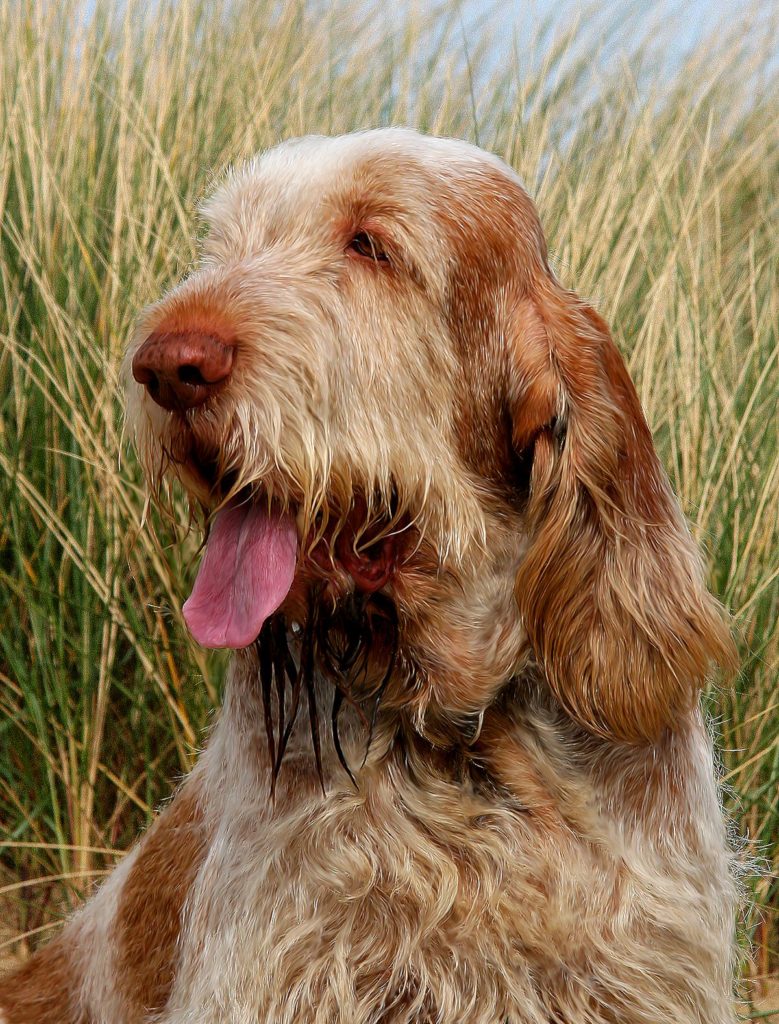
The unique characteristics of a Spinone will melt your heart. Why would you want to miss out on this by getting a Spinone cross. You have no idea how a cross breed will turn out.
If you want a Spinone buy one from a good breeder.
If you want a cross, please visit a dog’s home where thousands of wonderful crossbreeds are waiting for loving homes for a nominal fee.
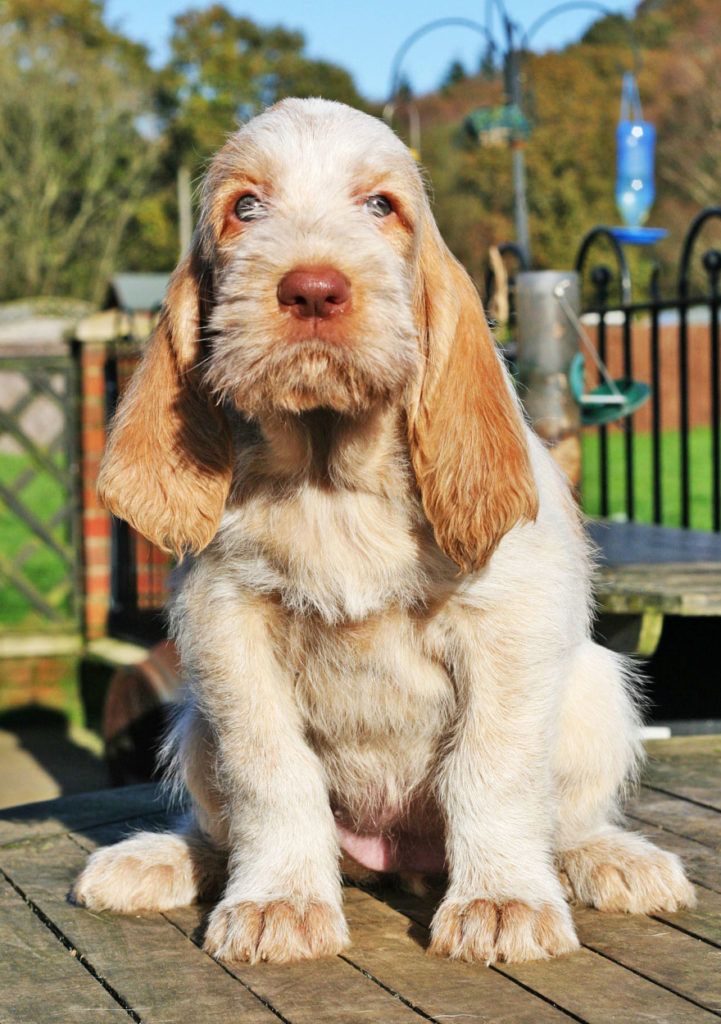


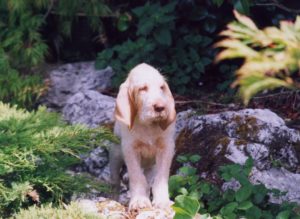
VALUE FOR MONEY ?
Are cross breeds really worth more than a pedigree or an expensive mistake? What are you actually getting for your money (or not as the case may be)?
The initial purchase price may be the same or higher than buying a pedigree Spinone but you are not getting good value for money. It is a very expensive way of buying what is little more than a mongrel. There are literally thousands and thousands of mongrels that are desperate for a new home. The rescue centres are full of them so if you don’t want a proper Spinone go to a rescue centre and buy a mongrel for a fraction of the price you will pay for a cross breed.
An increasing number of cross breeds are advertised at the same price or even higher than an equivalent pedigree would be. You wouldn’t pay the full price for a Del Boy market copy of a designer product so why do that with a cross breed dog.
If you fall for a cross breed you will be missing out on the breeding experience that you would get from a good Spinone breeder. They will have planned their litter carefully to improve on the previous generation and you will know what you are getting for your money.
Good Spinone breeders will offer a lifetime of advice and support for you and your new family addition. They will be fully familiar with the breed and what it is like to own and live with one.
With a pedigree you will know what to expect in terms of size, coat, temperament, life expectancy, behavioural tendencies etc. With a cross breed you could end up with any size of dog, an unpredictable temperament, a coat that is difficult to look after and unknown, unexpected health issues.
So think carefully before considering a cross breed and if you do decide that a pedigree Spinone is not for you then please visit a rescue centre and give a home to one of the thousands of crosses that somebody has already decided they didn’t want after all.
HYPO-ALLERGENIC ?
Hypo-allergenic? A non-shedding Spinone? A spinone sheds hair and is not hypo-allergenic.
If a Spinone is crossed with something that is less pre-disposed to shed hair then why would any puppies only inherit the coat genes from the non-shedding dog? If you want a dog that doesn’t moult, then don’t get a Spinone or a cross breed. Get a breed that doesn’t shed hair.
A cross breed is a bad idea if this is a requirement as you cannot possibly predict what sort of coat the puppies will have and there will also be variation in the litter. Some may well end up with a coat more like the non-shedding parent but some will not. How will you know when you choose your puppy at a few weeks old how it will turn out.
Anyone advertising a cross breed as “non-shedding” or “hypo-allergenic” is using these words to make them more appealing. Why . . . because they are trying to sell them.
Can you return them if they don’t “do what they say on the tin”. Maybe you can but will you be able to part with them by the time you find out.
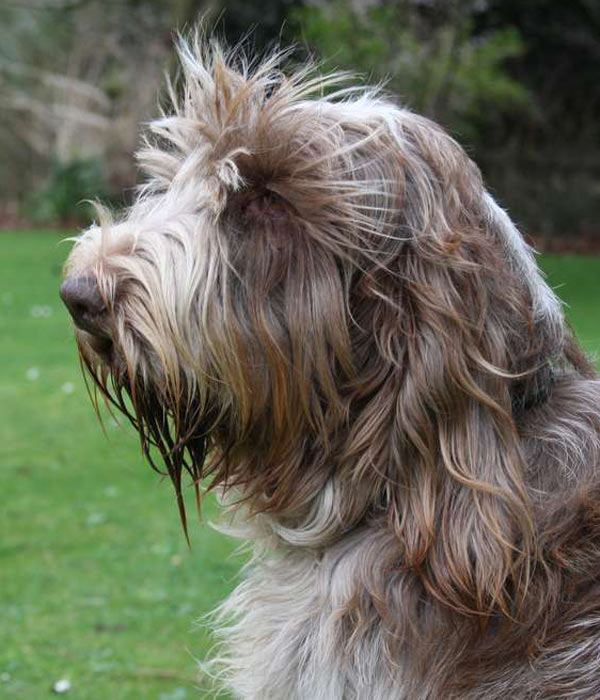
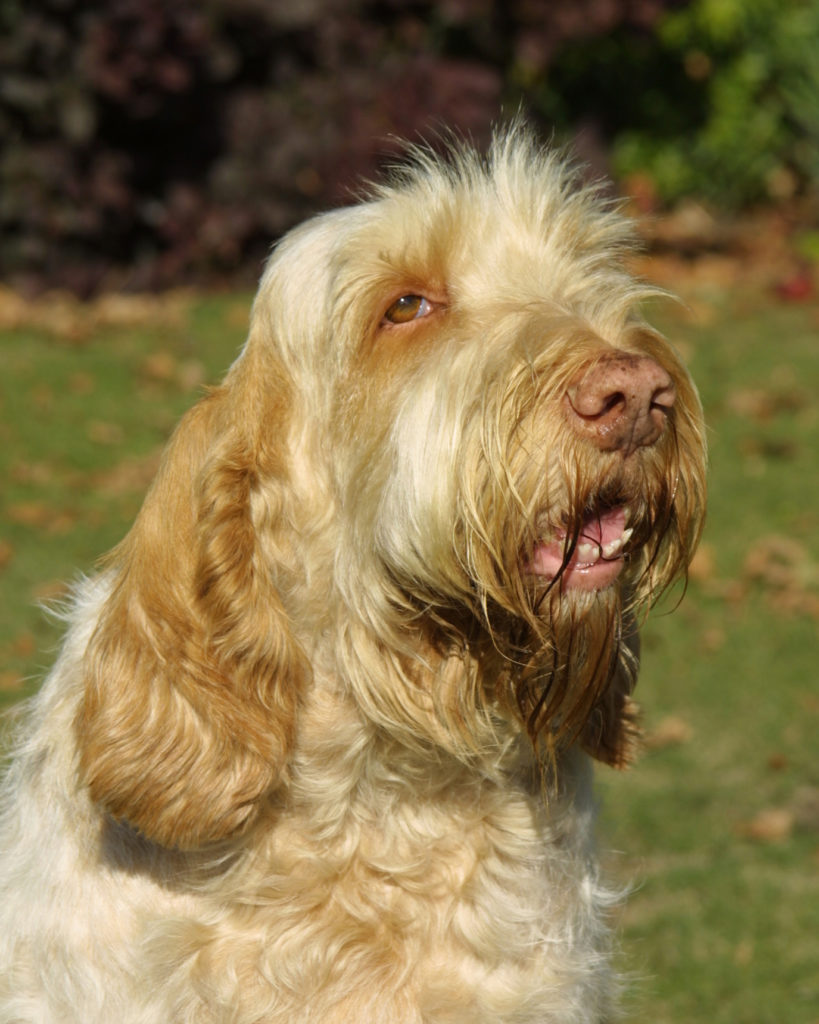
HEALTH ISSUES ?
Health – are they more healthy than a pedigree?
A good Spinone breeder will have a great deal of knowledge and experience of the dogs that are in their pedigrees. They will know what goes with what, they will know the health issues in their lines and are breeding to improve on the previous generation. They will test their breeding dogs for known health issues and care about the welfare of both parents and puppies for the whole of their lives.
With a cross breed puppy you are stepping into the unknown. The breeder cannot know what health issues may emerge because they are mixing two breeds. They have no history or experience on which to base this aspect of breeding. Generally cross breeds are first generation, that means that each parent is a purebred dog but are a different breed. So you are always taking a chance with this type of alliance, there is no history to be able to develop any patterns or consistency.
A Spinone cross is no less likely to have health issues than a pure bred Spinone. They can still develop Cancer, Bloat, Epilepsy, Allergies, Joint problems etc.
You may have read that pedigree dogs purely bred for showing have developed unhealthy features as a result; this is simply not true and the media like to use extreme examples to make good headlines to sell their publications.
BEST OF BOTH BREEDS ?
Ask yourself why would crossing two breeds of dog result in only the best features of each breed?
All breeds have their good features and their bad. Individual dogs within each breed can display desirable and undesirable traits. Nature does not take all the good bits from each parent to produce the perfect dog. Even when breeding 2 dogs of the same breed this doesn’t happen, otherwise all pure bred dogs would be perfect!
Undesirable traits and features have a habit of dominating the good and can stay hidden for several generations . . . . . before rearing their ugly head. Things like health problems, bad temperaments, behavioural issues etc may suddenly re-appear when two dogs of different breeds are crossed. Each mating is a risk as there is no benefit of hindsight or experience that a breeder of pedigree dogs will have.
A pedigree breeder will have good knowledge of the lines behind their dogs and will have bred selectively away from the undesirables. With a cross breed you are just as likely, if not more so, to see the worst of each breed rather than the best.
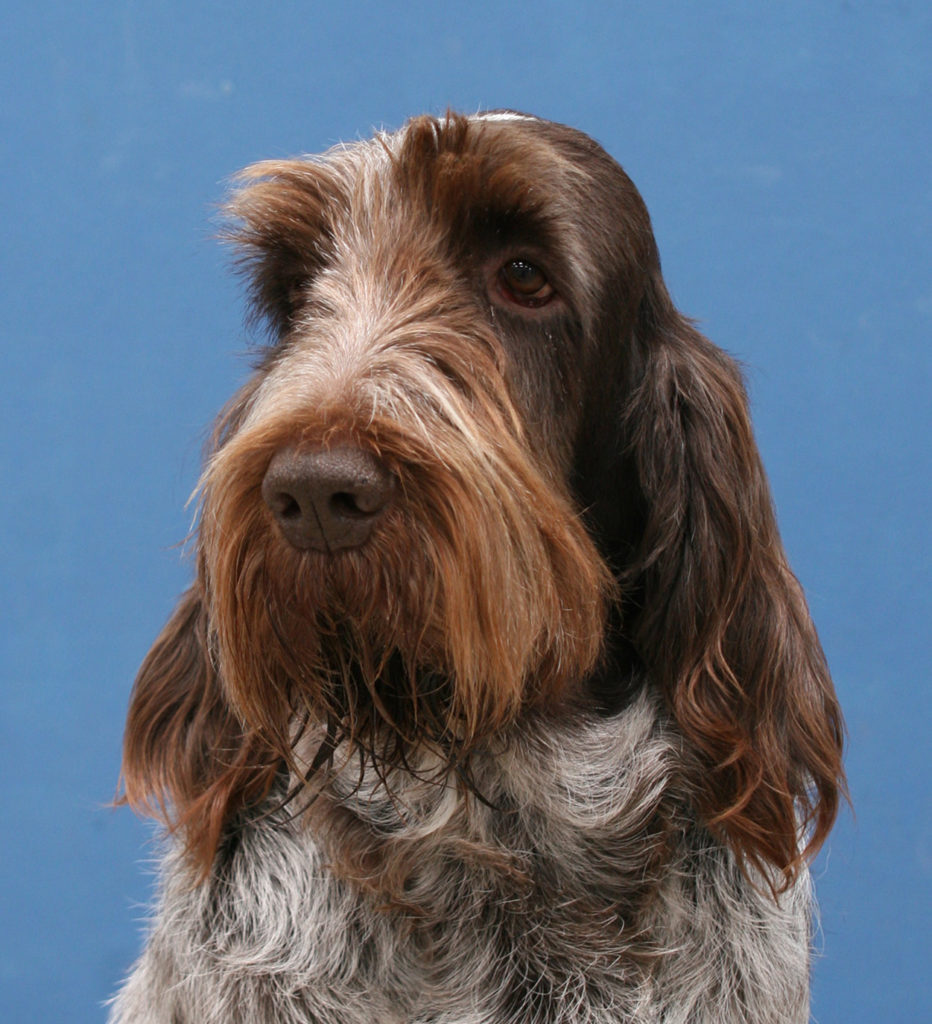
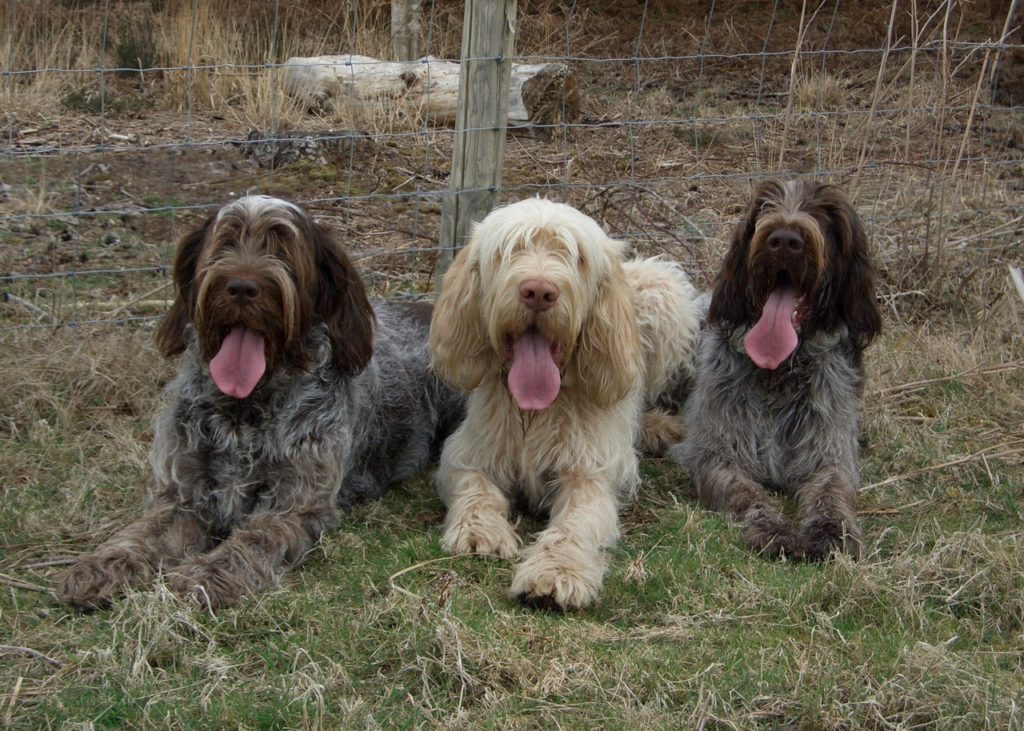
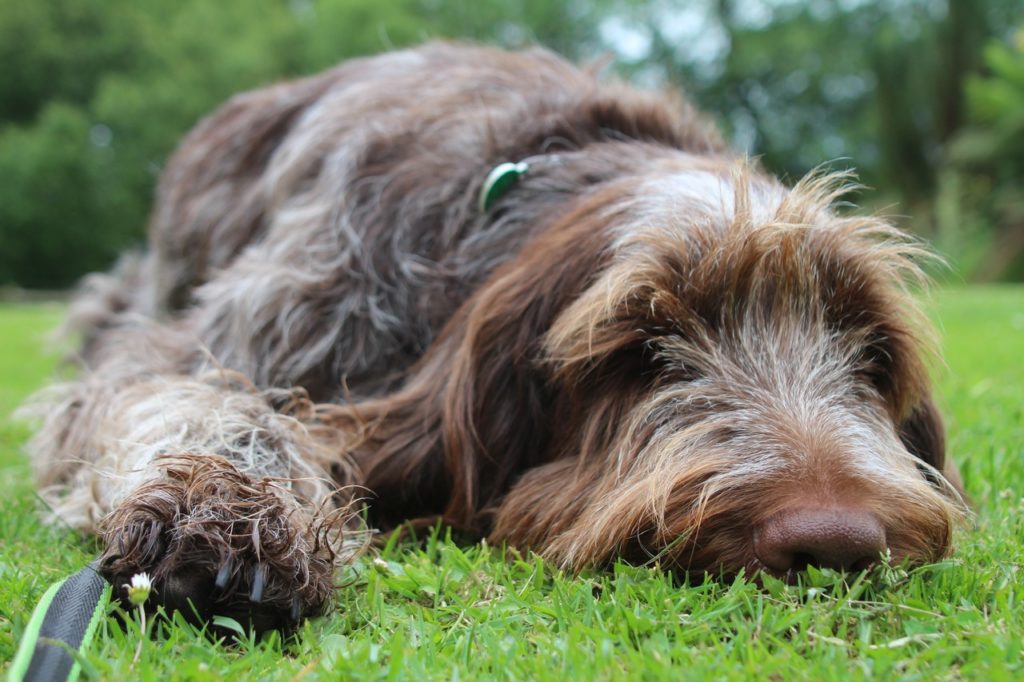
RARE BREED ?
Rare breed, pedigree, registered – what do these words really mean?
The breeder may tell you or advertise the fact that it’s a rare breed, the parents are both registered pedigrees.
Cross breeds are often marketed to fool the unsuspecting buyer into thinking that they are getting something of high quality or better than they actually are.
So is it a rare breed? Rare, yes they may be uncommon, but they are certainly not a breed in their own right. If you are told they are rare, either by the breeder or in an advertisement, then the seller is using this word to make you think you are getting something exclusive. If something this rare were truly in demand it wouldn’t need to be advertised.
A true breed of dog will be recognised by the Kennel Club and can therefore be registered. There will be one or more specialist Breed Clubs throughout the country which can offer advice and support about the breed. A cross breed will not be registered and you will not be able to compete at conformation shows, working tests or trials. Furthermore, if your intention is to breed from your cross when it is older then you are diving head first into the unknown.
Cross breeds may be advertised with ‘registered pedigree parents’ to mislead you into thinking you are getting a puppy that will be registered and that the puppy will be a pedigree puppy. Ask yourself why the seller is using these words. They have no meaning of any value when used to advertise a cross breed. The fact that both parents are ‘registered’ or ‘pedigree’ means nothing once they are crossed.